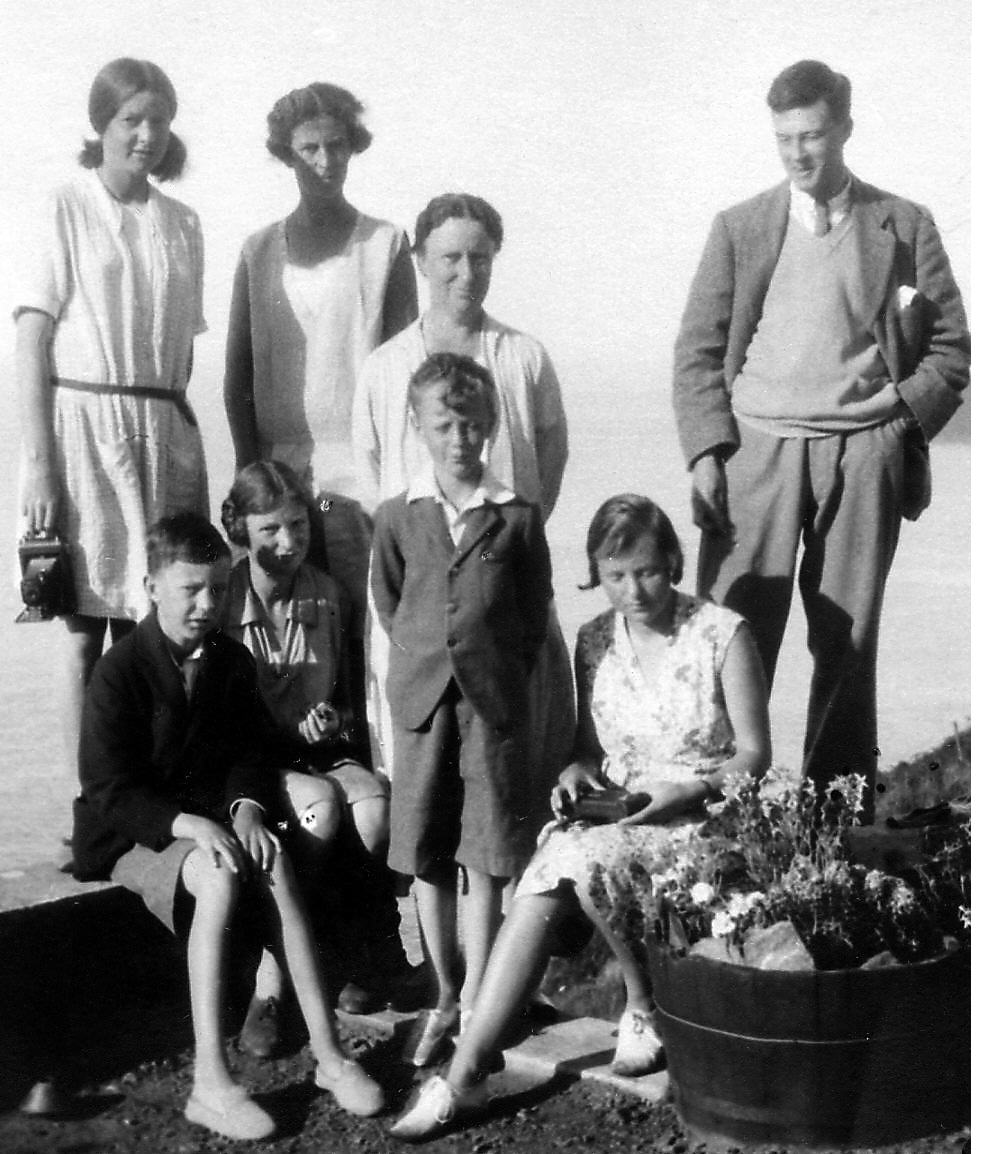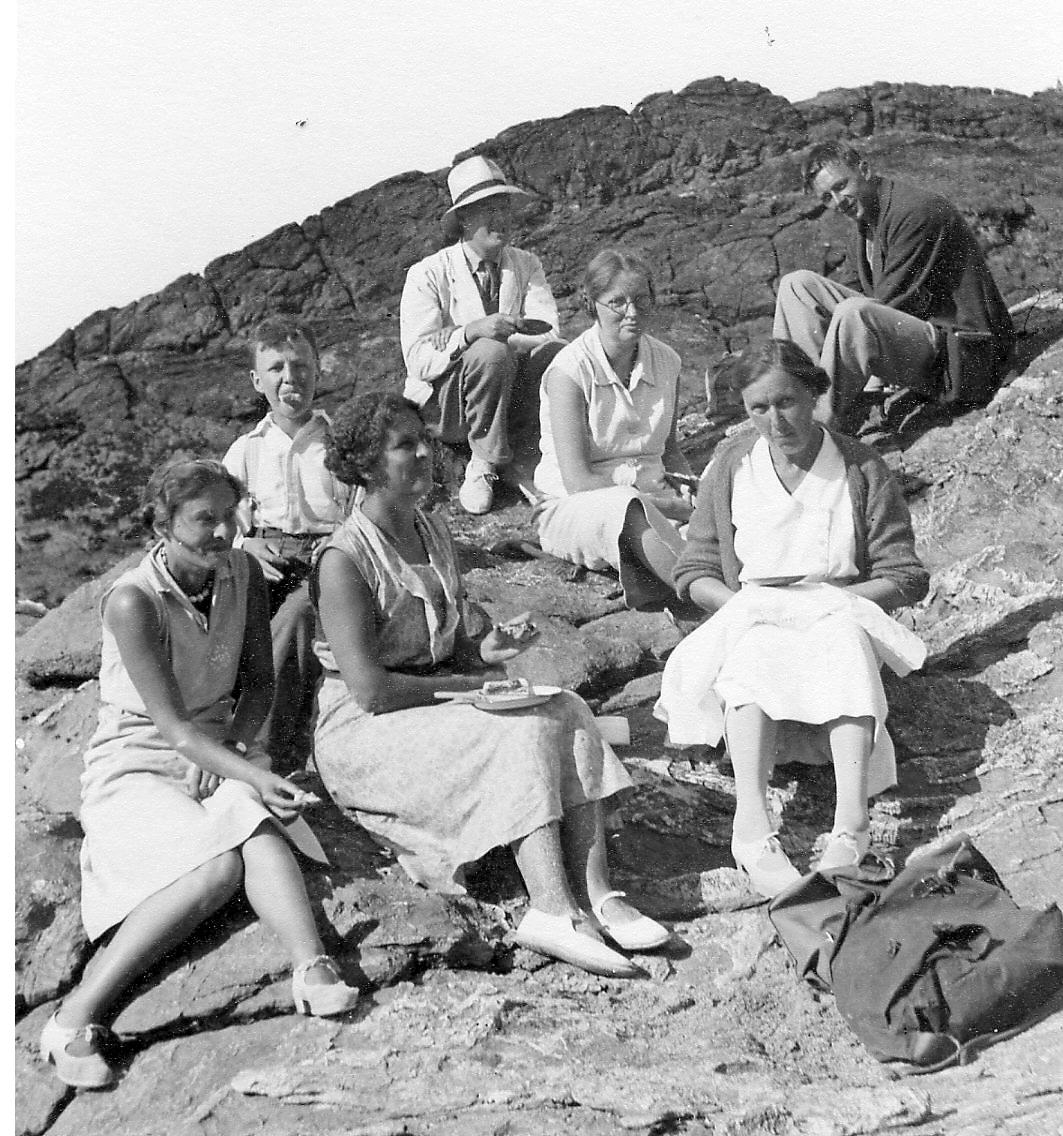 was born
in 1903. His father Humphrey Milford became Publisher to
the Oxford University Press in 1913, and founded its
Music Department in 1923. Robin was taught composition by
Holst and Vaughan Williams at the Royal College of Music.
As a young man he was part of a group of musicians in
Epsom, and when my mother Alice and her two sisters
Elizabeth and Peggy started to attend, their governess
Kirstie Newsom went along with them and in her own words
"scraped a viola with them and so met Robin."
They were married in 1927. was born
in 1903. His father Humphrey Milford became Publisher to
the Oxford University Press in 1913, and founded its
Music Department in 1923. Robin was taught composition by
Holst and Vaughan Williams at the Royal College of Music.
As a young man he was part of a group of musicians in
Epsom, and when my mother Alice and her two sisters
Elizabeth and Peggy started to attend, their governess
Kirstie Newsom went along with them and in her own words
"scraped a viola with them and so met Robin."
They were married in 1927. Robin's compositions met
with some early success in the late 1920s. He got to know
Gerald Finzi well, a fellow composer. As time went on, he
turned more to instrumental compositions. However, money
was always short. He struggled with insomnia and
depression all his life, and their only child Barnaby
(dressed in red for safety) was knocked off his bicycle
on a quiet road and killed in 1941 aged five, which was a
devastating blow. Gerald Finzi died in 1956, to Robin's
great sorrow, and Vaughan Williams his mentor died in
1958. When Oxford University Press asked him to remove
large numbers of his remaindered works in December 1959,
he fell into total despair. He ended his life by taking
an overdose of Aspirin three days before 1960.
 My
mother was fond of Robin, and used to speak of him:
Kirstie was a regular visitor at our house when I was
growing up. Personally, I used to find the story of Robin
embarrassing and upsetting. I also tended to adopt the
view of my generation as a young man that because the
style of Robin's music was not modern and avant-garde, it
was of little worth. My
mother was fond of Robin, and used to speak of him:
Kirstie was a regular visitor at our house when I was
growing up. Personally, I used to find the story of Robin
embarrassing and upsetting. I also tended to adopt the
view of my generation as a young man that because the
style of Robin's music was not modern and avant-garde, it
was of little worth.
Now that I have had my own battles with insomnia and
depression, and observed the difficulties Robin's niece
Marion Milford went through in her final years, I see
things rather differently. Also, who cares about being
avant-garde nowadays? In fact, considering the relentless
hostility of the music critics to Robin during his life,
I find it remarkable that he kept on composing at all. I
chickened out - I wanted to be a compser in my youth, and
was encouraged to keep on composing by Robin Orr who was
Professor of Music at Cambridge when I was there, but I
never did, because I had no wish to be atonal.
So through his dogged persistence, we have around two
hundred works by Robin to enjoy. Thank you for your
interest, and happy music making.
David Pennant
There are more writings and photos of Robin on the
Trust website, including a brief biographical
introduction by Peter Hunter.
|